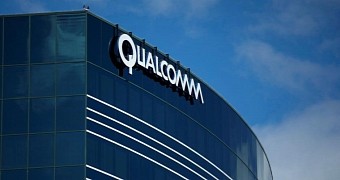Despite being Apple and Qualcomm suing and accusing each other of patent infringement, the two are still working together as part of a collaboration that has Qualcomm chips powering part of the iPhones currently on the market.
Apple, however, has gradually stepped away from Qualcomm, and following these legal disputes, it’s believed that the company could finally give up on the chip maker entirely, making the huge step towards the manufacturing of its own chipsets or working exclusively with Intel.
Qualcomm’s modem chips were installed on the iPhone 4s through iPhone 6s, while the most recent models are running on hardware developed by both Qualcomm and Intel.
Asked if it’s prepared for a world without Apple, just in case the Cupertino-based tech giant decides to abandon Qualcomm next year, the chip maker says there’s absolutely no reason not to be optimistic about the future.
“Yes, there's one big OEM that we will continue to work hard to supply some of their volume, but in addition to that, we have seen tremendous growth in China, we have seen tremendous growth in the other customers with Samsung, and then we've seen growth outside the phone space. And on top of that, 5G is coming with a lot of new attributes,” Cristiano Amon, the president of Qualcomm CDMA Technologies (QCT), told PCMag.
While Amon hasn’t specifically mentioned Apple, the big OEM reference is a direct hint at the iPhone maker, with the Qualcomm executive adding that Qualcomm CDMA Technologies (QCT) is no longer the exclusive supplier for the said OEM.
Qualcomm: There’s life beyond phones too
“We've been very public in QCT. In early '16 we said, we're modeling our business assuming that a very large OEM is always going to [embrace] multi sourcing, and even multi tiering. It was probably surprising to a lot of people that now that we have a full year of a dual source on that OEM, we saw QCT continue to grow. Just on non-phone business, we probably [totalled] $3 billion,” he added.
Qualcomm says it’s prepared for other companies to develope alternative solutions to its products, but it claims it’s looking beyond phones to continue innovating.
“You can't really predict with any precision that the OEM landscape is going to be like that forever. And when you get to a new generation, like 5G, you may create an entry point for many OEMs in the market. It appears a bigger issue because the market is concentrated, but we will only really be worried if the decision of the market is that there's no more innovation in the phone space. If that's not the case, it's a very dynamic market,” Amon said.
Apple hasn’t commented on the possibility of going all-in on Intel for 2018 iPhones, but with the legal dispute against Qualcomm not expected to end very soon, there’s a good chance the next generation wouldn’t rely on QCT modems.

 14 DAY TRIAL //
14 DAY TRIAL //